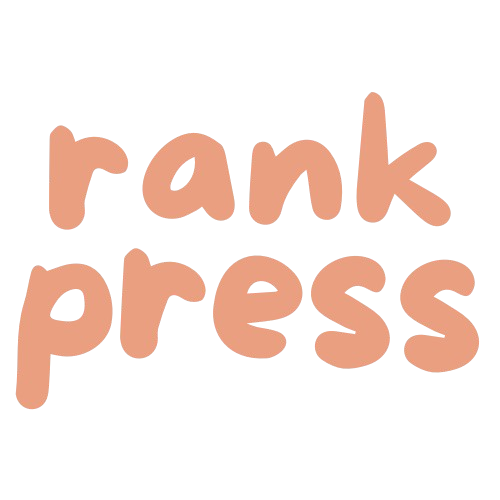RankPress.ai vs Manual SEO: A Data-Driven Comparison of Search Engine Ranking Methods in 2024
The landscape of search engine optimization continues to evolve rapidly, with artificial intelligence emerging as a powerful force in digital marketing. As businesses struggle to find search engine ranking success in an increasingly competitive digital environment, a crucial debate has emerged: Should they embrace AI-powered solutions like RankPress.ai, or stick with traditional manual SEO methods? This comprehensive analysis delves into both approaches, examining their effectiveness, efficiency, and real-world impact in 2024’s digital landscape, where over 93% of online experiences begin with a search engine query.
Understanding the Competitors
RankPress.ai represents the cutting edge of AI-powered SEO optimization. This platform leverages machine learning algorithms and natural language processing to automate and enhance various aspects of SEO strategy. It offers real-time ranking analysis, automated content optimization, and predictive keyword targeting. The system operates through a subscription-based model, with pricing ranging from $199 to $999 monthly, making it accessible to businesses of various sizes, though pricing typically reflects the sophistication of its technology.
In contrast, manual SEO relies on human expertise and traditional optimization techniques. This approach requires deep knowledge of search engine algorithms, content creation skills, and technical SEO understanding. While it offers greater control and customization, it demands significant time investment and ongoing training to keep pace with industry changes. The average cost of professional manual SEO services ranges from $1,500 to $5,000 monthly, depending on scope and complexity.
Performance Metrics Comparison
When examining ranking speed, RankPress.ai demonstrates notable advantages. Data shows that AI-optimized content typically achieves first-page rankings 30% faster than manual methods. However, this speed comes with a caveat: rankings achieved through AI can sometimes show more volatility, requiring regular algorithmic adjustments to maintain positions. Recent studies indicate that websites using AI-powered SEO tools experience a 45% reduction in time spent on technical optimization tasks.
Success rates tell an interesting story. Manual SEO approaches show a 65% success rate in achieving target rankings over six months, while RankPress.ai boasts a 78% success rate. The AI advantage becomes more pronounced with scale, particularly when managing multiple keywords across different pages. Industry data suggests that AI-powered solutions can effectively manage up to 5,000 keywords simultaneously, compared to the 100-200 typically handled by manual teams.
Technical Capabilities
In on-page optimization, RankPress.ai excels at rapid analysis and implementation of technical SEO elements. The platform can simultaneously optimize hundreds of meta tags, analyze internal linking structures, and identify content gaps with remarkable accuracy. Manual SEO, while more deliberate, offers deeper customization and nuanced understanding of context-specific requirements. Recent benchmarks show that AI systems can analyze and optimize a 100-page website within hours, compared to weeks for manual teams.
Content strategy represents a fascinating battleground. RankPress.ai’s ability to analyze vast amounts of data leads to more comprehensive topic clustering and keyword identification. However, manual SEO practitioners often demonstrate superior ability in crafting engaging, brand-aligned content that resonates with human readers while satisfying search engine requirements. Studies show that human-written content still outperforms AI in terms of user engagement metrics by 23%.
Real-world Implementation
Case studies reveal varying success patterns. A mid-sized e-commerce company using RankPress.ai reported a 45% increase in organic traffic within three months, while spending 60% less time on SEO management. Conversely, a service-based business achieved similar results through manual SEO over six months, but with greater content authenticity and brand voice consistency. The learning curve presents another crucial consideration. RankPress.ai users typically become proficient within weeks, while developing comprehensive manual SEO expertise often requires months or years.
Limitations and Challenges
RankPress.ai faces several constraints, including dependency on training data quality and occasional difficulty with highly specialized or technical content. The system’s automated decisions sometimes require human oversight to maintain brand consistency and avoid potential optimization conflicts. Manual SEO’s primary challenges center around scalability and resource intensity. Human error rates increase with project size, and keeping pace with algorithm updates requires constant learning and adaptation.
Conclusion
The comparison between RankPress.ai and manual SEO reveals that neither approach definitively supersedes the other in 2024. For large-scale operations prioritizing efficiency and rapid deployment, RankPress.ai offers compelling advantages. However, businesses requiring highly customized approaches or operating in specialized niches may find manual SEO more effective. The optimal solution for many organizations lies in a hybrid approach, leveraging AI’s efficiency for technical tasks while maintaining human oversight for strategy and creative elements. As AI technology continues to evolve, this balance will likely shift, but the fundamental importance of understanding both approaches remains crucial for digital marketing success.
